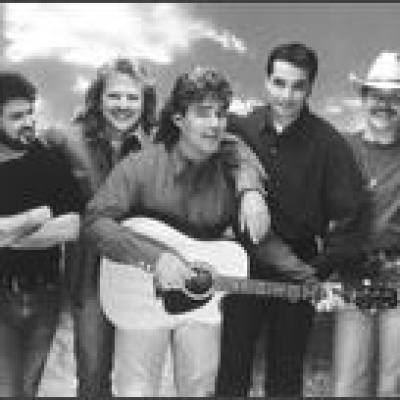
Shenandoah
by John Bush Most country groups of the 80s favored a commercial pop-oriented approach that alienated many traditional listeners but captured the ear of the mainstream. Shenandoah was one of the first groups to rebel against the urban cowboy image of the 80s and lead the way to the new traditionalism of the 90s. Initially formed in 1985 as a house band in Muscle Shoals, AL, it comprised vocalist Marty Raybon, guitarist Jim Seales, keyboard player Stan Thorn, bassist Ralph Ezell, and drummer Mike McGuire. One night, McGuire invited his friend, songwriter Robert Byrne, to come and watch the MGM band. He was impressed enough to record the band and offer the tapes to CBS, who christened and signed Shenandoah. The groups self-titled album, released in 1987, leaned a little close to the pop-schmaltz they later rebelled against, though they reached the country Top 30 early in 1988 with Stop the Rain. The following year, Road Not Taken outlined the groups approach to traditional country and became their most successful album; six singles reached the country Top Ten, led by the number ones The Church on Cumberland Road, Sunday in the South, and Two Dozen Roses. Road Not Taken reached gold status by 1991 and earned Shenandoah the Favorite Newcomer award from Music City News. The first single from third album Extra Mile (1990) continued — and even topped — Shenandoahs success. Next to You, Next to Me became Shenandoahs biggest hit, topping the country charts for three weeks. It was followed into the Top Ten during 1990-1991 by Ghost in This House, I Got You, and The Moon Over Georgia. The groups streak of hit singles ended with the mere Top 40 When You Were Mine in September 1991. Despite the success, trouble was brewing. Three other bands came forward in 1991 claiming the Shenandoah name, and the resulting court costs and legal fees bankrupted the group by the end of the year. To make it even worse, CBS — who had named Shenandoah in the first place — dropped the group from its roster. The band settled the differences by 1992 and returned to country music with a contract from RCA and the number two hit Rock My Baby in April of that year. Shenandoahs fourth album, Long Time Comin, also featured the Top 15 Leavins Been a Long Time Comin. Fifth album Under the Kudzu (1993) continued Shenandoahs popularity, with the Top Five single I Want to Be Loved Like That and the groups fifth country chart-topper in early 1994, If Bubba Can Dance (I Can Too). Shenandoah moved to Liberty/Capitol in late 1994 for their sixth album, In the Vicinity of the Heart. The album was released in January 1995 and featured the Top Tens Somewhere in the Vicinity of the Heart (with Alison Krauss) and Darned If I Dont (Danged If I Do). Shenandoah returned to its roots in 1996 for Now and Then, which combined re-recorded versions of CBS singles with four new songs. Four years later, 2000 was released.

